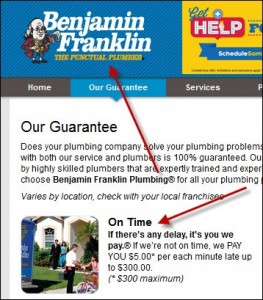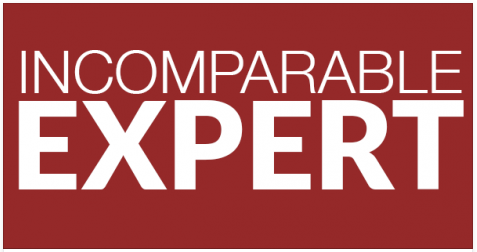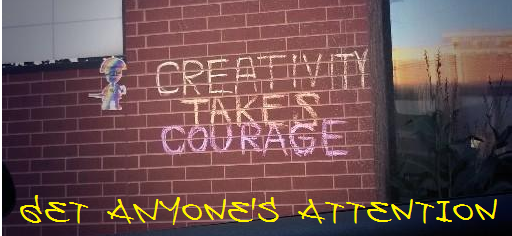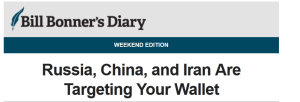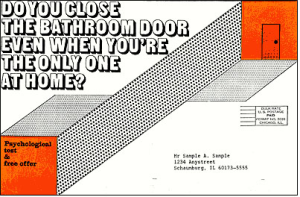“I always listen to everything my clients have to tell me. And then I ignore them… I write it the way it’s supposed to be, up to, and including, sometimes changing the offer without their permission.” ~ John Nicksic
So much for permission-based marketing! …I’m kidding.
Seriously though, there an a few important lessons here. Today, I only want to talk about the most obvious takeaway.
No Disrespect Intended
If you’ve never heard of Mr. Nicksic, let me fill you in. He’s one of the highest-paid old-school direct mail copywriters around. He’s learned a few things about printed persuasion over the years.
When he says he ignores his clients, he’s not being a jerk. He’s simply using his best judgement as an expert in getting stuff sold. He explains it this way:
“I’m a much better direct mail copywriter than they are, so what do I do? I seize control of the message without asking their permission…
“I rely on the power of the copy I hand them for the first draft. I let them read it and see for themselves how much better it is my way than what they had in mind… They quickly see what I’m up to, why it makes more sense, and why it is time for them to readjust their thinking.”
It’s not an issue of hijacking the words that end up on the page. In most cases the copywriter is expected to lead that charge. The thing that needs to be changed is quite often the proposition itself.
Many business owners are sadly mistaken about how boring their offers are. If the product or service you’re selling doesn’t:
- promise a benefit that gets the ideal prospect’s blood pumping
- describe a danger hiding just out of sight, waiting to pounce and devour the ideal prospect
- offer secret knowledge or exclusive access to something the ideal prospect wants to get his hands on
…or some other such exciting result, it will be next to impossible to write sales copy that’ll fix the problem.
Sales copy isn’t designed to make lame products exciting. It’s supposed to
- extract the interesting and useful elements of a quality product
- shine a spotlight on them and
- draw buyers over to take advantage of the newly-exposed value.
A boring offer is a problem that needs to be fixed. Sometimes that means ignoring a client.
I Missed It Bad…
One of my clients had the opportunity to write an email to the subscribers of a well-known personal finance newsletter last week. (I’m excluding names to protect everyone involved, except myself.) The list was 29K strong, all paid subscribers. My client sells a product these subscribers KNOW they need. The tricky part is, a lot of them already own one.
Positioned properly, it could have been a slam dunk.
I spent 3 days writing a 300-word email that would planted doubts about the quality of the product they already owned, insinuated that there is critical information they’ve never been told and gave them access the “hidden truth” in a nonthreatening way.
The marketing director loved it and sent it up the chain for final approval.
The big boss vetoed the free info offer. Instead, he opted to go for the sale immediately with an educational but generic pitch.
The results: 28,987 emails delivered, 14% open rate (which I’m told is over 3 times the average for marketing emails to that list) and 6% click per open.
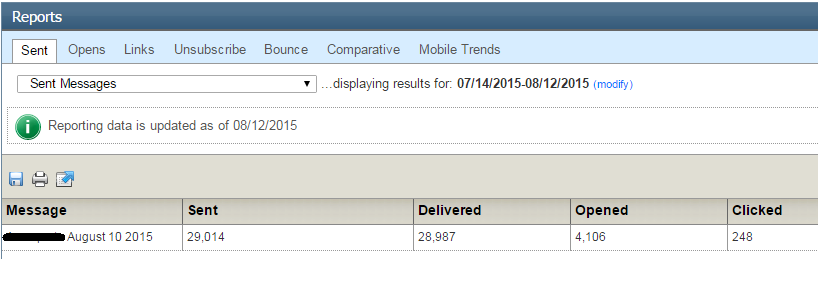
The number that matters? The email only produced 3 leads. That means only one in about 10,000 people who received the email became leads. When I checked on the results yesterday, none of them purchased the product.
I was bummed out all day.
70% of Copywriting Success Is in the Offer
Denny Hatch estimates that the efficacy of an online marketing promotion depends 70% on the offer, 10% on the list, and 20% on creative (copy and design).
In the case above, I missed it.
I could have taken a more aggressive stance, as Nicksic recommends. I caved without a fight, hoping to keep the client happy. As a result, a pretty massive opportunity slipped through our fingers.
Take note: Even with a great list and a solid product, you have to have an enticing offer.
P.S. I always advise clients and colleagues to make it easy for customers to take the first step. Going directly for the sale isn’t always the best idea.
What are you doing today to make it easy for your “should-be” customers to take the first step toward you?

